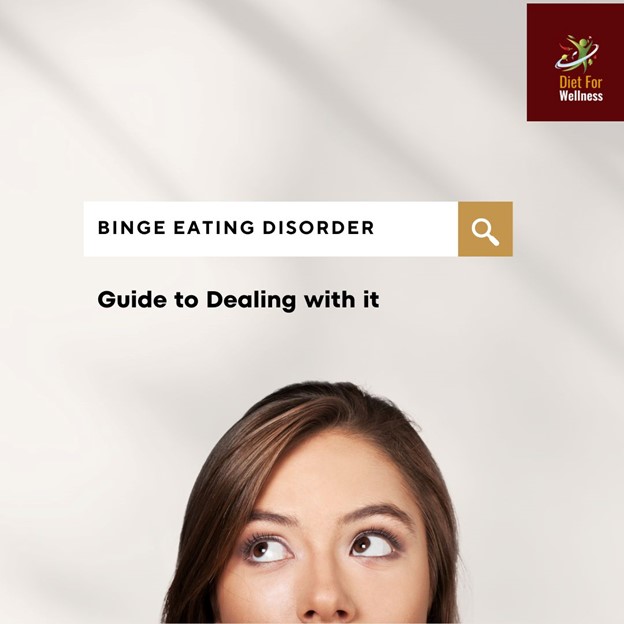Dealing with binge eating disorder? Here’s a guide to help

Binge Eating Disorder (BED) is a serious mental health condition where the person has recurrent episodes of eating large quantities of food, within a short span of time. Unlike other eating disorders, this does not involve the use of compensatory behaviors, like fasting, or excessive exercise.
If you’re struggling with BED, know that you are not alone and that help is available.
What is Binge Eating Disorder?
BED involves
- Eating excessive amounts of food in a specific period.
- Feeling out of control during binge episodes.
- Eating even when not physically hungry.
- Eating rapidly during binge episodes.
- Eating until uncomfortably full.
- Feeling distressed, ashamed, or guilty about eating.
Causes and Risk Factors
The exact cause of BED is unknown, but several factors can contribute to its development
- Biological Factors- Genetic predisposition, hormonal imbalances, and irregularities in brain chemicals can play a role.
- Psychological Factors- Low self-esteem, depression, anxiety, and other mental health disorders are often linked with BED.
- Social and Cultural Factors- Societal pressure to be thin, history of dieting, and exposure to certain cultural norms can contribute to disordered eating patterns.
Steps to Overcome Binge Eating Disorder
- Acknowledge the Problem Recognizing and admitting you have BED is the first and most crucial step toward recovery. Acceptance helps break the cycle of shame and denial.
- Seek Professional Help
- Therapists- Cognitive-behavioral therapy (CBT) is the most effective treatment for BED. you will be able to understand and change your thoughts and behaviors that result in binge eating.
- Nutritionists- A registered dietitian can help you develop a balanced eating plan, understand hunger cues, and establish a healthy relationship with food.
- Support Groups- Sharing your experiences with others who understand what you’re going through can be incredibly beneficial.
- Develop Healthy Eating Habits
- Regular Meals- Stick to a regular meal schedule to avoid extreme hunger, which can trigger binge eating.
- Mindful Eating- Pay attention to your food, savor each bite, and eat without distractions.
- Balanced Diet- Focus on incorporating a variety of foods that provide essential nutrients and keep you satisfied.
- Manage Stress and Emotions
- Identify Triggers- Track your eating patterns and check the triggers for binge episodes.
- Develop Coping Strategies- Find healthier ways to cope with stress, such as exercise, meditation, or hobbies.
- Emotional Support- Build a support network of friends, family, or support groups who can provide emotional support.
- Implement Self-Care Practices
- Sleep- Ensure you get enough deep sleep as fatigue can also trigger this habit.
- Exercise- Engage in regular physical activity that you enjoy. Exercise helps reduce stress and improve mood.
- Mindfulness and Relaxation- Practice mindfulness techniques like yoga, deep breathing, or progressive muscle relaxation to stay grounded and reduce anxiety.
- Be Patient and Kind to Yourself Recovery from BED is a gradual process with ups and downs. Avoid self-criticism and practice self-compassion.
Dealing with binge eating disorder is difficult, but if you follow the right strategies, recovery is possible. Take the first step today, and reach out for the help you deserve.
